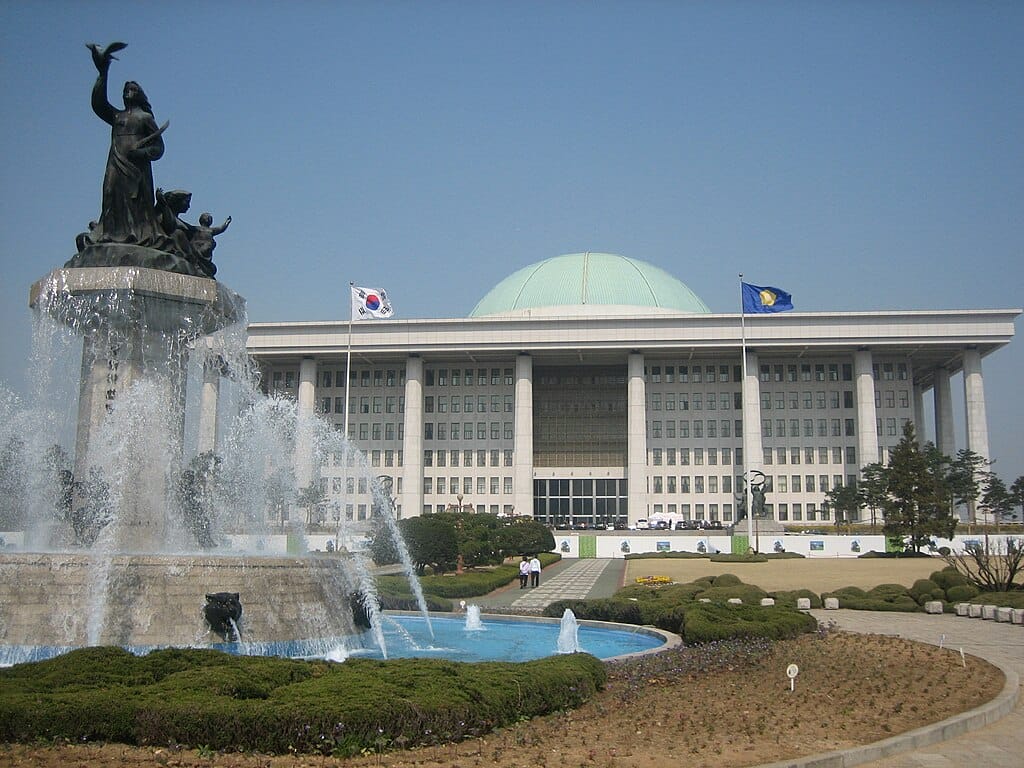South Korean Lawmakers Consider ‘Abolishing’ Crypto Tax Law

South Korean lawmakers may “abolish” a new crypto tax law, six months before it even comes into force.
According to Hanguk Kyungjae, the National Assembly Legislative Research Service mentioned the possible crypto tax “abolition” debate in the latest edition of the National Assembly Legislative Policy Guidebook.
South Korean Lawmakers Could Delay or Do Away With Crypto Tax Law
MPs are set to vote on proposals that would scrap a proposed tax on certain forms of conventional financial investment.
However, some have argued that such a move would discriminate against investors in other assets like stocks and crypto. The guidebook’s authors noted:
“[MPs] must decide whether and when to implement the virtual asset income taxation system in conjunction with their discussions [about] [conventional financial investment] tax.”
The Legislative Research Service noted that some believe “virtual assets are investment-focused [assets] like stocks.”
The service claimed that “virtual assets” are “bought and sold” much like “stocks.” It explained:
“[Lawmakers] must consider tax parity and fairness [if they] abolish the [conventional financial investment] tax. It could be argued that [the crypto tax] should also be postponed or abolished.”
Lawmakers have previously voted to delay the launch of a flat-rate 20% tax levy on crypto-related “income” of over 2.5 million won (around $1,810) per year.
With lack of regulatory framework, ‘crypto whale’ misses out on lucrative market opportunitieshttps://t.co/uSvTG1kQYg
— The Korea Herald 코리아헤럴드 (@TheKoreaHerald) June 3, 2024
MPs Under Pressure to Delay or Cancel Crypto Tax
The much-maligned “crypto tax” was first voted into law at the start of the decade. But the tax proved divisive in the assembly from the very outset.
It was initially intended to come into force in January 2022. But lawmakers decided to delay it by a year in late 2021.
Instead of coming into force on January 2023, however, political parties then agreed to postpone the launch until 2025.
Early this year, President Yoon Suk-yeol’s People’s Power Party promised voters it would delay the rollout for two further years if it performed well in April’s legislative elections.
The party was roundly defeated on April 10. However, politicians have found themselves under fresh pressure to ditch the tax regardless.
In January, a senior Ministry of Economy and Finance official said the National Assembly should “discuss” whether it should ditch the tax.
The official said lawmakers should consider including crypto on a list of tax-free financial investments.
As it stands, the law would require crypto traders to start logging their profits on January 1, 2025. They would then need to report and pay taxes on these profits by May of the following year.

‘Investment Parity Needed,’ Say Crypto Enthusiasts
South Korean domestic investment has been sluggish for decades, with many investors preferring to dabble in overseas investment and crypto.
Foreign buyers up, domestic sellers down in Korean stock markethttps://t.co/UEcd7EWsHK pic.twitter.com/URuo2MwzBO
— The Korea Times (@koreatimescokr) February 14, 2024
The administration of former President Moon Jae-in took a harder line on this, insisting that “where there is income, there should be taxation.”
But Yoon’s administration has instead sought to loosen the pressure on investors, possibly hoping that this will spark growth.
Crypto investors say the tax is unfair, as its thresholds are much lower than those for domestic stock market traders.
With just six months to go before the tax launches, experts think lawmakers will decide before the end of the current National Assembly session.








